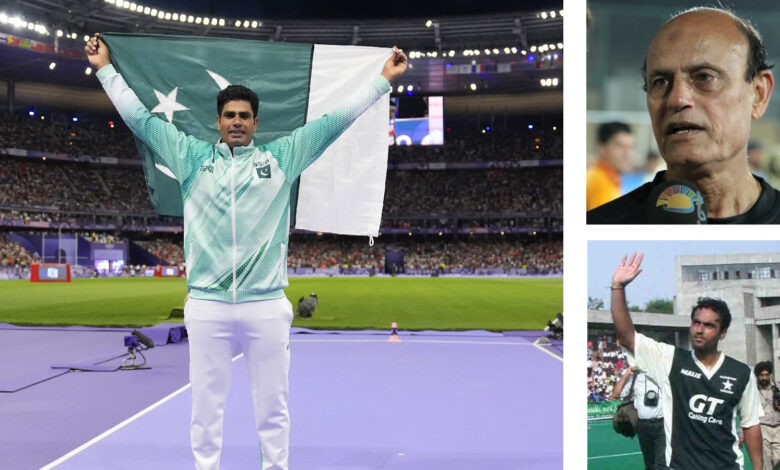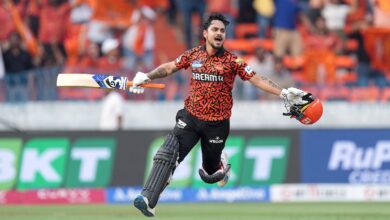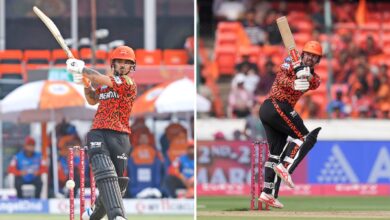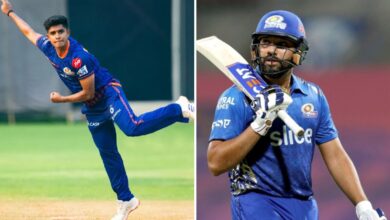Arshad Nadeem wins Olympics gold: Pakan hockey legends believe javelin glory is ‘oxygen that could revive nation’s sports culture’ | Sport-others News

For decades, Pakan’s brightest hope in the Olympics was hockey—eight of its eleven medals were achieved its wizardly stick-wielders. Hockey has long bit the dust in the country, and so has other sports, but there is a new hope in the form of javelin thrower Arshad Nadeem, his country’s first ever track and field medal, a gold no less. His 92.97 metre throw, hockey legend Sohail Abbas says, has given Pakan’s sporting culture a ray of hope. “In Pakan, all the sports barring cricket to some extent have been dying, before this Arshad’s medal,” he says.
“This means a lot because after 32 years Pakan has won a medal. This is Arshad’s individual brilliance. He didn’t have any support. I will be honest I had no clue about the javelin throw before his name started to make rounds in the media. Now we are getting to know about his struggle. Now that he has won, everyone will come to take credit. I sincerely hope these people will invest properly. This medal will give a new lease of life to Pakan and I hope Pakani hockey too,” he explains the significance of the medal.
Former captain Islahuddin Siddique—an integral part of the silver-medal winning team in Munich 1972 and a bronze-winner in Montreal 1976—feels Arshad Nadeem’s medal will reignite the passion of sport among the youths of the country. ”His gold has given Pakan sports oxygen. We were dying and it might change the course of sports in Pakan, not only in javelin but also others,” says Siddique.
“In both India and Pakan, people were watching javelin at 1 am in the night. This has only happened in cricket. Rise of Arshad will help us grow as a sporting nation. To be called an Olympian is a massive thing and to win a medal at that stage, it doesn’t get any better. What Arshad has done to Pakan, no one can describe it properly,” he says
Credit to Neeraj Chopra
Both Siddique and Abbas give credit to Neeraj Chopra for the rise of Arshad Nadeem. “They have set an example and shown us what the true meaning of sportsmanship is,” says Abbas.
“Neeraj has helped him at every juncture of his career. In the last few events, you can see they always used to stay close. They are talking to each other. It has helped Arshad grow. Even after losing Neeraj said ‘it was Arshad’s day’, and spoke about the hard work he has put in. For a few hours, the bitterness between these two nations was gone. Then you see the reaction of their mothers,” he adds.
“I grew up hearing stories about Pakan and India finishing 1-2 in hockey at the Olympic podium. In my playing days, I never saw it but I am lucky to be alive when a Pakani and Indian are doing well in a sport the west has been dominating,” says Abbas.
He tells another story to capture Pakan hockey’s plight. “Earlier this year we reached the final of the Sultan Azlan Shah Cup. And our members of the federation didn’t know the difference between Azlan Shah and the Asian Games. I shall rest my case.”
Hockey’s decline in Pakan
Once a powerhouse—apart from eight World Cups, they have won three Olympic golds (1960, 1968 and 1984), three silvers (1956, 1964 and 1972), and two bronze (1976 and 1992)—but have not qualified for the last three Olympics. Siddique was the coach when they last won an Olympic medal, in 1992. “We finished fourth in Sydney 2000. Then all our senior players retired. The transition never happened. Once that batch retired, we never found that replacement,” he says.
Abbas blames the system’s incompetence. “I have played with the likes of Dilip Tirkey, Dhanraj Pillay, and Viren Rasquinha. Dilip is the president and he will always have his heart at the right place for Indian hockey. Dhanraj bhai is also involved. Whereas, in Pakan, we are nowhere to be seen. Hockey has become stagnant,” he says.
“Players of my generation in India, they are working in the system. They are coaching or they are in management. In Pakan, half of my former teammates have left the country. The federation doesn’t care about it. There is no system in place,” he adds.
Abbas praised the renaissance of India. “There was a dip in Indian hockey as well. Now they have won back-to-back bronze medals. They have a young core and a fantastic captain in Harman. I am biased because I love that kid and I feel at the LA Games they might win gold,” he says.
Meanwhile Siddique feels the Pakani players have failed to evolve over the period of time. “Hockey is more physical now. You need fitness. This is what we lacked, compared to European teams. We failed to evolve with time and India did. The result is for everyone to see. India should have played the final. The way they have played in the tournament was exciting. I was sure that if India had played in the final, they might have won the gold,” he says.






